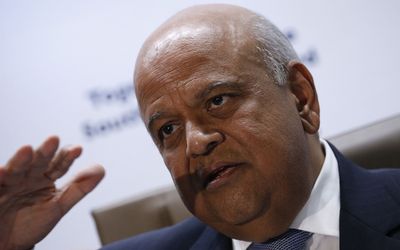AT the Cabinet lekgotla that starts on Tuesday, there’s only one matter that needs to be top of mind — the economy.
If the government cannot find ways to boost the economic growth rate and avert a ratings downgrade to junk status, it simply will not have the resources to deliver on the promises it has made of "a better life for all".
December’s ratings downgrades and the rout of the rand caused by the firing of Nhlanhla Nene as finance minister seem to have focused the collective minds of the government and African National Congress (ANC) on the economic crisis SA faces — albeit belatedly.
That, at least, is the impression given by Finance Minister Pravin Gordhan and ANC secretary-general Gwede Mantashe.
Mr Gordhan has told this newspaper that the government was "alive" to the environment and that it would do what was necessary to prevent SA being downgraded to junk status.
He and Minister in the Presidency Jeff Radebe have promised that the government will stay on the path of fiscal consolidation, raising high expectations of this month’s budget.
Mr Mantashe has similarly reassured that the ruling party is serious about the economy, using similar language to Mr Gordhan after last week’s ANC lekgotla.
The obvious question, though, is whether either of them will be able to get their colleagues to deliver on the promise.
However worthwhile the lekgotlas or Friday’s meeting between Mr Gordhan and CEOs might have been, now is the time to make hard decisions and implement them — not merely meet about them.
The budget is the one big test of the government’s resolve. If he wants to restore credibility, Mr Gordhan will probably have to do better on the fiscal-consolidation targets set out in October’s medium-term budget, not just meet them. That is going to be tough, given the deterioration in SA’s economic prospects.
The past few budgets have stuck to expenditure ceilings, which has allowed spending to keep rising at a modest pace. But the Cabinet will now have to make hard choices, such as where the spending cuts should be and understand that nothing can be sacrosanct.
The public sector wage bill is one clear challenge for fiscal consolidation and although contractually the government can’t pull back from the three-year deal, it will have to find ways of putting the lid on the bill. Every item, including social spending, must be scrutinised.
It has an equally hard job on revenue, where it needs to send the right signals about tax reforms — any efforts to raise more revenue cannot undermine SA’s already anaemic growth rate nor dent battered confidence levels.
But the budget is not the only or main item on the list of what’s needed to prevent a recession and avert a downgrade.
It’s the micro, not just the macro, of economic policy and that means Mr Gordhan getting his colleagues to focus on boosting growth rather than imposing more regulations or muddying the perceptions of SA as an investment destination.
The Cabinet must prioritise investment spend and open up investment in infrastructure to the private sector. That means a different approach to state-owned enterprises and their mandate. Appointing appropriate directors to their boards and sorting out the governance crises that many are in, wouldn’t harm either.
Crucially, the Cabinet needs to send the right signals. That means reviewing legislation and regulations that repel investors and undermine investment.
It means too that the Cabinet needs to get serious about fixing the state of the state itself. Unless it rapidly becomes more efficient and less corrupt, SA has little chance of convincing investors or rating agencies that it can grow faster and deliver on its fiscal commitments.





















Change: -0.47%
Change: -0.57%
Change: -1.76%
Change: -0.34%
Change: 0.02%
Data supplied by Profile Data
Change: -1.49%
Change: 0.08%
Change: -0.47%
Change: 0.00%
Change: -0.04%
Data supplied by Profile Data
Change: -0.34%
Change: 0.03%
Change: -0.10%
Change: -0.22%
Change: -0.81%
Data supplied by Profile Data
Change: -0.28%
Change: -1.15%
Change: -0.07%
Change: -1.21%
Change: -0.22%
Data supplied by Profile Data